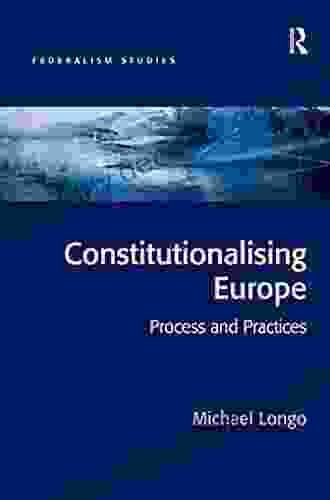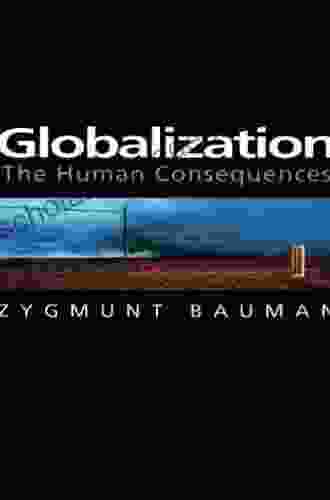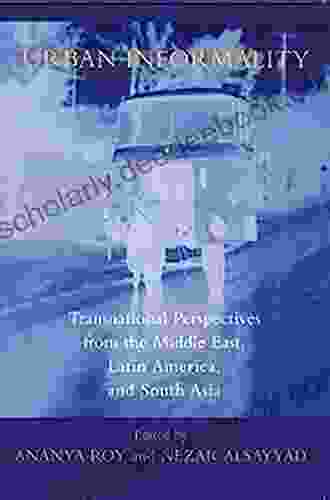Constitutionalising Europe: Processes And Practices (Federalism Studies)

The process of European integration has been marked by the constitutionalisation of the European Union (EU). This process has involved the development of a body of law that sets out the rules and principles governing the functioning of the EU. The EU's constitutional framework has been developed through a series of treaties and legal instruments, and it has been interpreted and applied by the European Court of Justice (ECJ).
The constitutionalisation of Europe has been a complex and contested process. It has been driven by a variety of factors, including the need to create a stable and effective legal framework for the EU, the desire to promote democracy and human rights, and the goal of achieving a more integrated and unified Europe.
The process of constitutionalisation has had a profound impact on the EU. It has created a new legal order that is distinct from that of the member states. It has also led to the development of a new set of institutions and procedures for governing the EU.
5 out of 5
| Language | : | English |
| File size | : | 1350 KB |
| Text-to-Speech | : | Enabled |
| Screen Reader | : | Supported |
| Enhanced typesetting | : | Enabled |
| Word Wise | : | Enabled |
| Print length | : | 250 pages |
The constitutionalisation of Europe is an ongoing process. It is likely to continue to evolve in the years to come, as the EU faces new challenges and opportunities.
Processes of European Constitutionalisation
The process of European constitutionalisation has been underway for several decades. It began with the signing of the Treaty of Rome in 1957, which established the European Economic Community (EEC). The EEC was a limited supranational organisation, but it gradually evolved into a more integrated and centralised entity.
The process of European integration was accelerated by the signing of the Single European Act in 1986. This act created a single market for goods, services, capital, and labour. It also strengthened the European Parliament and gave the EU more powers in areas such as environmental protection and consumer protection.
The Maastricht Treaty, signed in 1992, was a major turning point in the process of European integration. It established the European Union and created a single currency, the euro. The Maastricht Treaty also introduced a new legal framework for the EU, based on the principles of subsidiarity and proportionality.
The process of European constitutionalisation has continued with the signing of the Amsterdam Treaty in 1997, the Nice Treaty in 2001, and the Lisbon Treaty in 2007. These treaties have further strengthened the EU's institutions and powers, and they have also expanded the EU's competence in new areas such as justice and home affairs and foreign and security policy.
Practices of European Constitutionalisation
The process of European constitutionalisation has been accompanied by a number of practices that have helped to shape the EU's constitutional framework. These practices include:
- The use of treaties: The EU's constitutional framework is based on a series of treaties that have been negotiated and ratified by the member states. These treaties set out the rules and principles governing the fonctionnement of the EU.
- The development of case law: The ECJ has played a major role in the development of the EU's constitutional framework. Through its rulings, the ECJ has interpreted and applied the EU's treaties and legal instruments.
- The use of intergovernmental conferences: Intergovernmental conferences (IGCs) are meetings of the heads of state or government of the EU member states. IGCs are used to negotiate and adopt new treaties that amend the EU's constitutional framework.
- The use of constitutional conventions: Constitutional conventions are gatherings of experts and representatives from the EU institutions and member states. Constitutional conventions are used to discuss and make recommendations on the future of the EU's constitutional framework.
Federalism Studies
The process of European constitutionalisation has been the subject of much study by scholars in the field of federalism. Federalism is a system of government in which power is shared between a central government and a number of regional or state governments. The EU is a unique example of a federal system, as it is a supranational organisation that shares power with its member states.
Scholars in the field of federalism studies have been studying the EU for several decades. They have sought to understand the processes and practices of European constitutionalisation, and they have analysed the implications of European integration for the future of federalism.
Federalism studies have made a significant contribution to our understanding of the EU. They have helped to explain how the EU works, and they have provided insights into the challenges and opportunities facing the EU in the future.
The process of European constitutionalisation is an ongoing and complex one. It is a process that is shaped by a variety of factors, including the need to create a stable and effective legal framework for the EU, the desire to promote democracy and human rights, and the goal of achieving a more integrated and unified Europe.
The process of European constitutionalisation has had a profound impact on the EU. It has created a new legal order that is distinct from that of the member states. It has also led to the development of a new set of institutions and procedures for governing the EU.
The constitutionalisation of Europe is likely to continue to evolve in the years to come, as the EU faces new challenges and opportunities. Federalism studies will continue to play a vital role in our understanding of the EU and its future development.
Further Reading
- Benz, Arthur, and Carole Lecucq, eds. Constitutionalising the European Union: From the Treaty of Rome to the Lisbon Reform. Oxford: Oxford University Press, 2012.
- Goetz, Klaus H., and Gary Marks. European Integration and Supranational Governance. Oxford: Oxford University Press, 2014.
- Hix, Simon. The Political System of the European Union. Basingstoke: Palgrave Macmillan, 2012.
- Kelemen, R. Daniel. European Union Constitutionalism: Debating the Fundamentals. Cambridge: Cambridge University Press, 2014.
- Majone, Giandomenico. Regulating Europe. London: Routledge, 2014.
5 out of 5
| Language | : | English |
| File size | : | 1350 KB |
| Text-to-Speech | : | Enabled |
| Screen Reader | : | Supported |
| Enhanced typesetting | : | Enabled |
| Word Wise | : | Enabled |
| Print length | : | 250 pages |
Do you want to contribute by writing guest posts on this blog?
Please contact us and send us a resume of previous articles that you have written.
 Book
Book Page
Page Genre
Genre Library
Library Magazine
Magazine Newspaper
Newspaper Paragraph
Paragraph Bookmark
Bookmark Glossary
Glossary Bibliography
Bibliography Foreword
Foreword Preface
Preface Synopsis
Synopsis Annotation
Annotation Manuscript
Manuscript Scroll
Scroll Codex
Codex Bestseller
Bestseller Classics
Classics Library card
Library card Dictionary
Dictionary Thesaurus
Thesaurus Character
Character Resolution
Resolution Catalog
Catalog Card Catalog
Card Catalog Borrowing
Borrowing Stacks
Stacks Archives
Archives Periodicals
Periodicals Research
Research Lending
Lending Academic
Academic Literacy
Literacy Thesis
Thesis Dissertation
Dissertation Awards
Awards Reading List
Reading List Theory
Theory Textbooks
Textbooks Boyd Brent
Boyd Brent Hilary Walker
Hilary Walker Isaac Yang
Isaac Yang Suzanne Slade
Suzanne Slade Joanna Shupe
Joanna Shupe George Gershwin
George Gershwin Nomi Prins
Nomi Prins Vickii Engel Thomas
Vickii Engel Thomas Reta Maclennan
Reta Maclennan Michael Ondaatje
Michael Ondaatje Phil Baker
Phil Baker Jesse Hagopian
Jesse Hagopian S A Kader
S A Kader Lance Jepson
Lance Jepson Demar Irvine
Demar Irvine Sayan Mitra
Sayan Mitra Thomas Angelo
Thomas Angelo Sonya Spreen Bates
Sonya Spreen Bates Jane Heinrichs
Jane Heinrichs Padraig O Morain
Padraig O Morain
Light bulbAdvertise smarter! Our strategic ad space ensures maximum exposure. Reserve your spot today!

 Efrain PowellElder Bonds: Immortal Curse World - An Immersive Symphony of Dark Fantasy and...
Efrain PowellElder Bonds: Immortal Curse World - An Immersive Symphony of Dark Fantasy and...
 Italo CalvinoTime to Recharge: Harper's Journey of Self-Discovery, Healing, and Finding...
Italo CalvinoTime to Recharge: Harper's Journey of Self-Discovery, Healing, and Finding... Franklin BellFollow ·9.8k
Franklin BellFollow ·9.8k Deacon BellFollow ·3k
Deacon BellFollow ·3k Jerome PowellFollow ·10k
Jerome PowellFollow ·10k Spencer PowellFollow ·12.5k
Spencer PowellFollow ·12.5k Melvin BlairFollow ·12.9k
Melvin BlairFollow ·12.9k Jaime MitchellFollow ·19.4k
Jaime MitchellFollow ·19.4k Carlos DrummondFollow ·8.8k
Carlos DrummondFollow ·8.8k William PowellFollow ·10k
William PowellFollow ·10k

 Houston Powell
Houston PowellMusorgsky and His Circle: A Russian Musical Revolution
Modest Mussorgsky was a Russian...
 Barry Bryant
Barry BryantRanking the 80s with Bill Carroll: A Nostalgic Journey...
Prepare to embark on a captivating...

 Kelly Blair
Kelly BlairThe Diplomat's Travel Guide to Festivals, Holidays, and...
India is a land of vibrant culture and...

 José Saramago
José SaramagoFancy Nancy Nancy Clancy: Late-Breaking News!
Nancy Clancy is back with all-new adventures...

 Trevor Bell
Trevor BellGestalt Psychotherapy and Coaching for Relationships: A...
Relationships...

 Federico García Lorca
Federico García LorcaThe Last Love of George Sand: An Enduring Legacy of...
At the twilight of her remarkable life,...
5 out of 5
| Language | : | English |
| File size | : | 1350 KB |
| Text-to-Speech | : | Enabled |
| Screen Reader | : | Supported |
| Enhanced typesetting | : | Enabled |
| Word Wise | : | Enabled |
| Print length | : | 250 pages |








